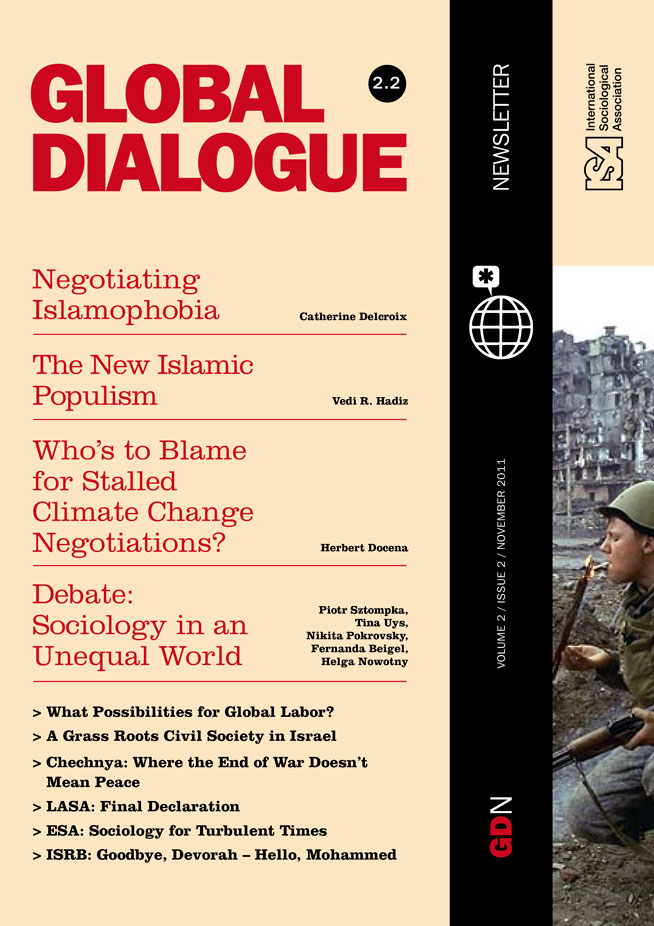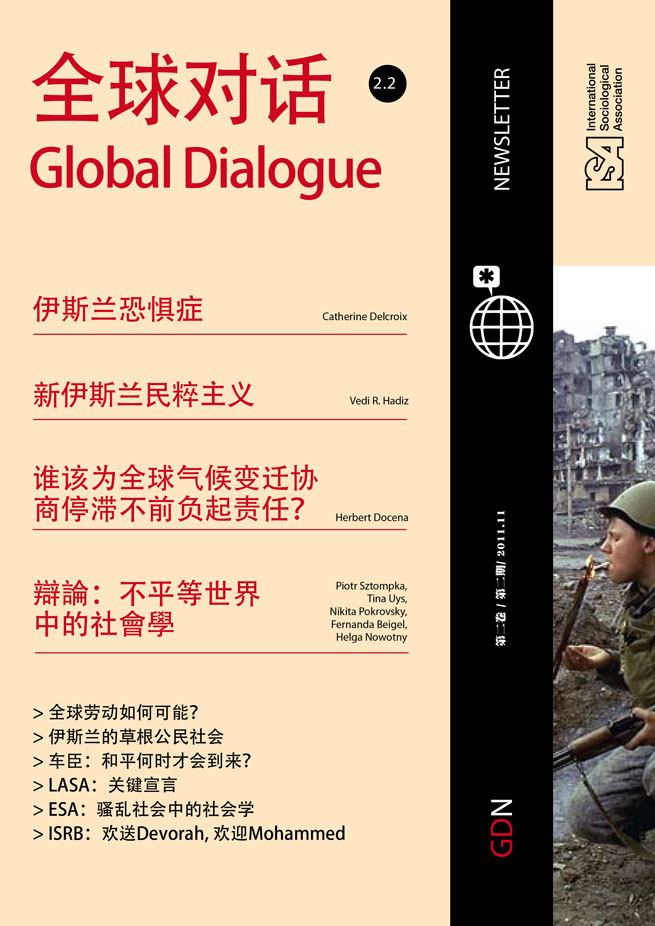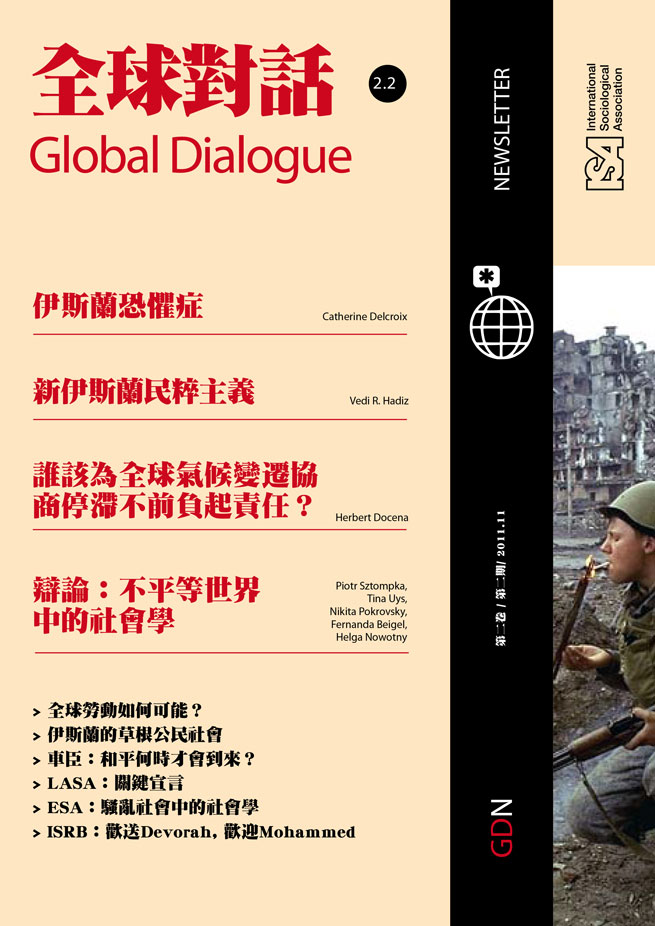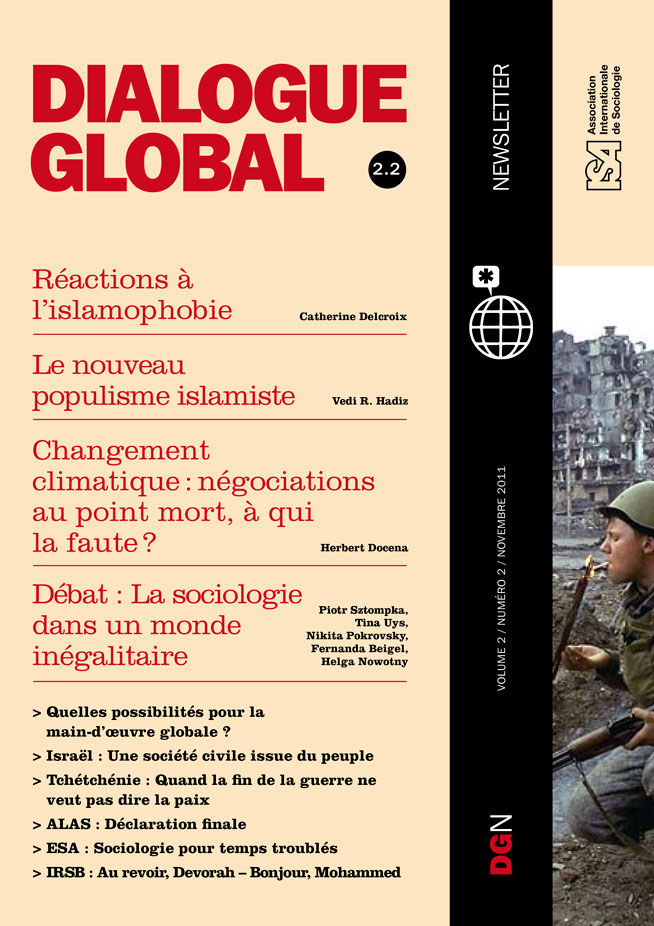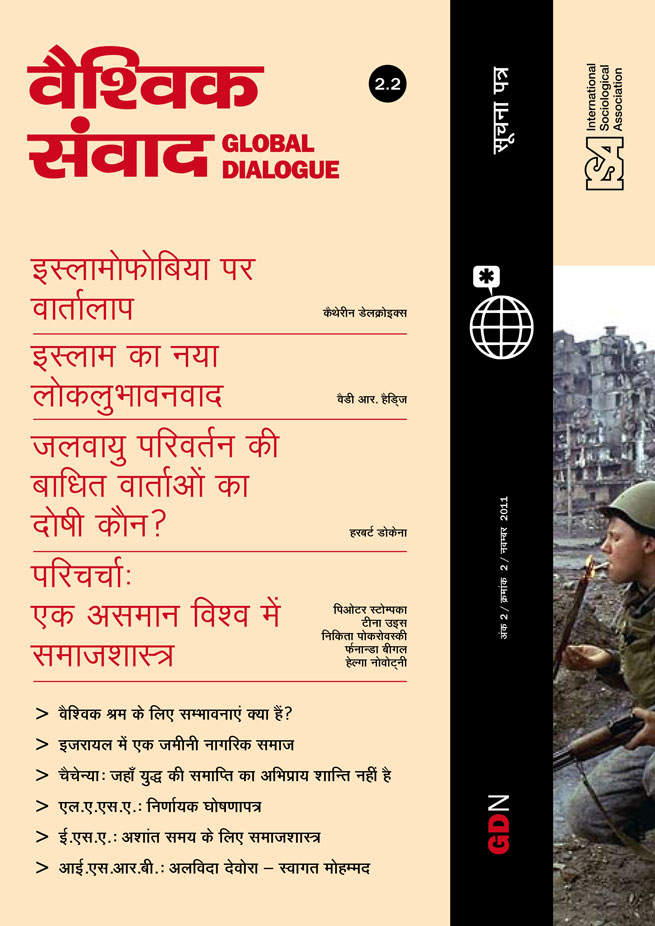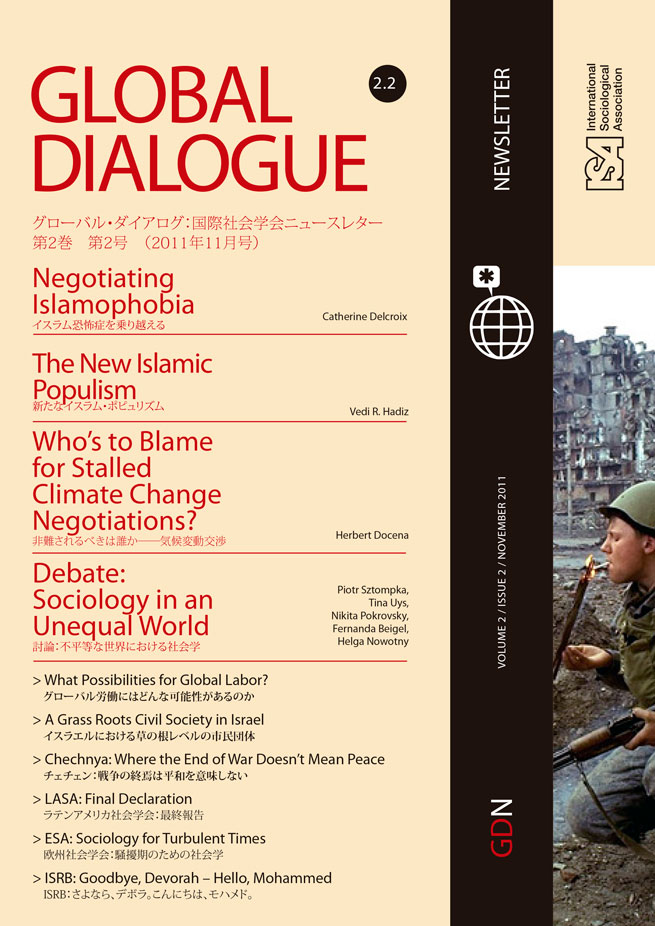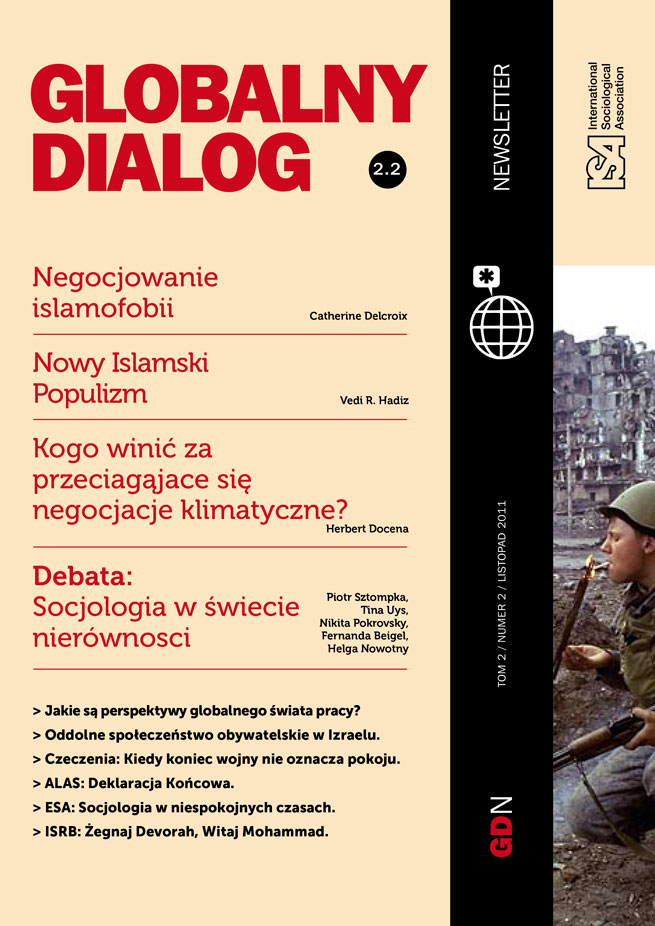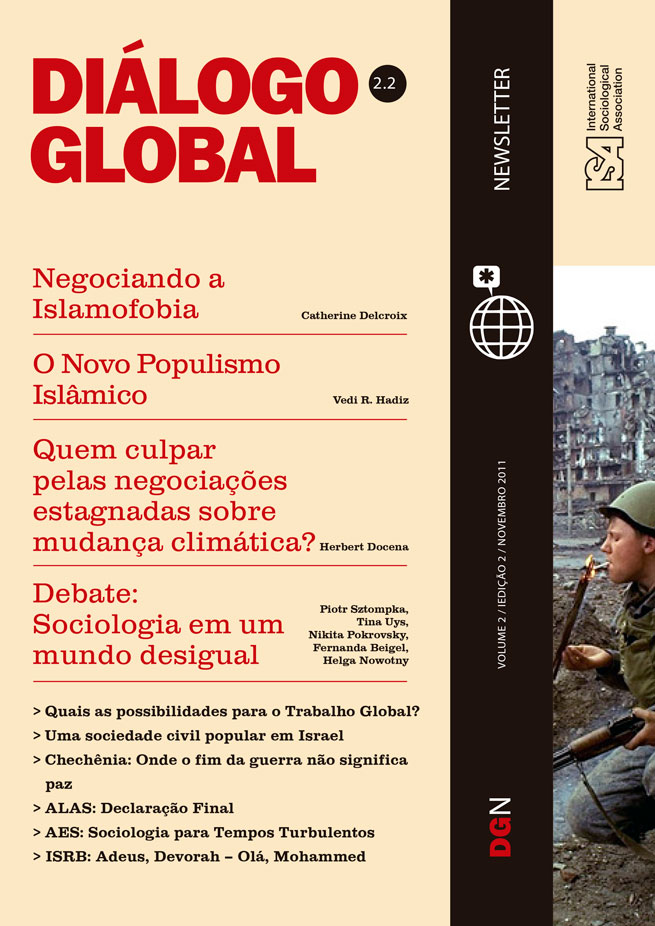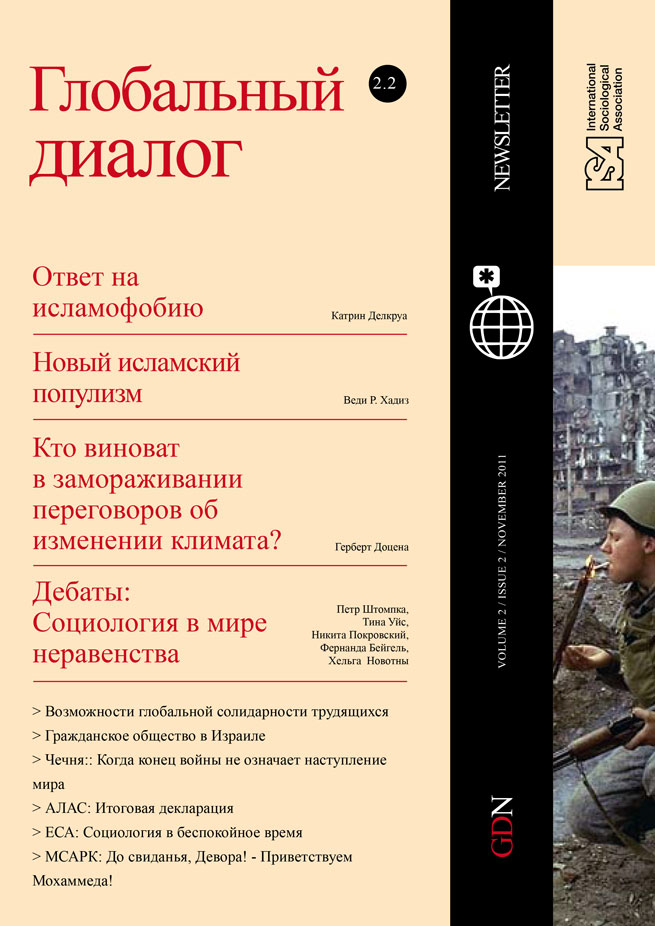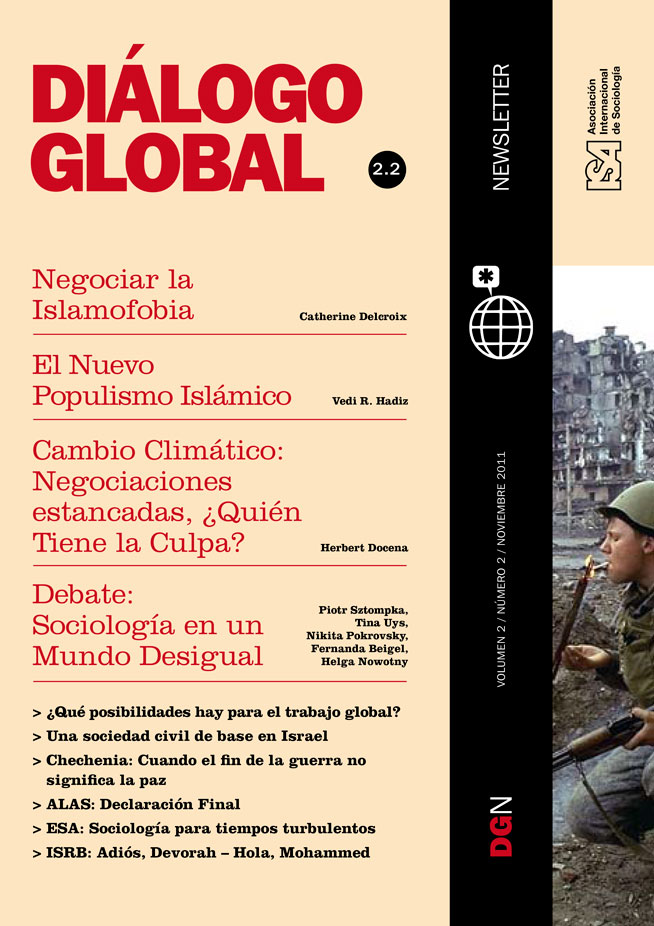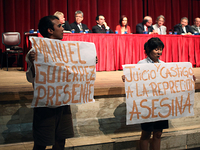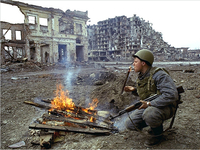Sociology for Turbulent Times: Address to the European Sociological Association
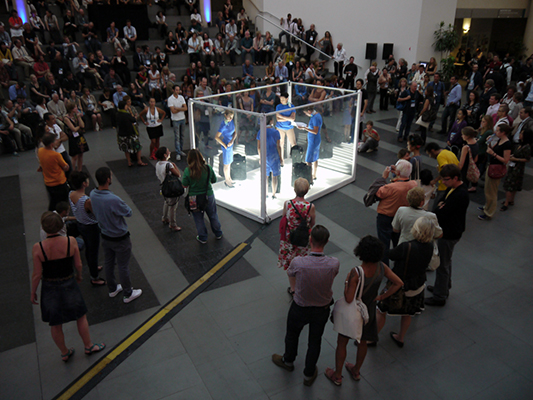
November 19, 2011
Social Relations in Turbulent Times, the theme of the European Sociological Association’s 10th Conference, held in Geneva, September 7-10, 2011, seems to have been on target. Turbulence is indeed an everyday reality, especially since the beginning of 2011.
In Europe, at the economic level we are facing what I dare term a financial war. In the 20th century we had two devastating world wars and then a ‘cold’ one; in the 21st century we are facing a financial and economic war. The pressure from financial markets and rating agencies looks and feels like a military invasion, touching country after country, beginning, of course, with the most fragile economies and attacking the euro. Neoliberal global dominance tends to invade all spheres – from markets to states and universities – subjecting them to its logic. At the same time the effect of the crisis at the social level has led to counter-reactions and violent protests. All this is compounded by an incredible ideological mystification. Private interests are saved with public money while public expenditure is blamed for the crisis!
How did we get here? The crisis we are living through seems the logical outcome of a trend foreseeable since the beginning of the 1980s. European sociologists have been insisting for long on the negative impact of the main political, economical and financial developments that led us here. Three parallel trends can be identified, sometimes intertwining, sometimes coexisting in contradiction and conflict.
The first trend is the financial and economic one. Global finance and its extraordinary mobility combine to dictate politics to regions and nation-states. In the last 20 years the power of multinational corporations with their access to new reservoirs of cheap labor puts ever greater strain on European countries. These pressures led to processes of fission and disintegration all through the 1990s. At the same time the mobility of financial capital makes states helpless in controlling and regulating it. Economic recession and the crisis of the welfare state are among the consequences of these processes. For sociologists it was not difficult to predict that clashes would arise under conditions of exclusion and economic deprivation. That is exactly what we are witnessing: serious conflicts, spontaneous protest and even violent riots.
A second trend takes place at the political level. The creation of the European Union was already a sign of the contradictory forces of disintegration referred to above. The EU represented a significant effort to build a body of norms and institutions defending human rights, fighting against nationalisms, or any other ‘ism’, and disparaging ideas of national supremacy. Moreover, these political norms and efforts were not nourished by ancient traditions – religious or other – but were lessons learned in World War II and the Holocaust. However, since the creation of the EU the tendency that seems to be winning is the neoliberal recipe of deregulation that has become the commanding force over the European Commission. The coalition of interests and political ideas that inspired the founders of the European Union and its social conception no longer prevail.
A third trend is the connection between civil society and the social and political agendas in Europe and at the global level. We are only too aware of the civic and political action against cuts and unemployment, against precarious jobs and prevailing immigration policies, and against the degradation of the planet. Yet it is obvious that there is a massive imbalance of power between civic players and multinational corporations. Not surprisingly, protests are often more explosions of rage against striking inequalities than organized actions with clear goals. They remind us of the period of early industrialisation and the insurgency of the ‘dangerous classes’.
Sociologists and social scientists have had an important role contributing to public policies and building the European social model. But we need much more than that now. It is urgent that we refine our analysis of the present crisis, mapping our domains of ignorance, and, to give only one example, opening the black box of the financial markets. It is urgent that we disseminate our results and discuss them publically, denouncing the negative impact of neoliberal choices and recipes. It is urgent that we connect our European efforts with our colleagues around the world, developing the diagnoses of Global Sociology and utilizing the strategies of Public Sociology as Michael Burawoy and others in the International Sociological Association have been doing.
Anália Torres, Universidade Técnica de Lisboa, President of the European Sociological Association, 2009-2011


